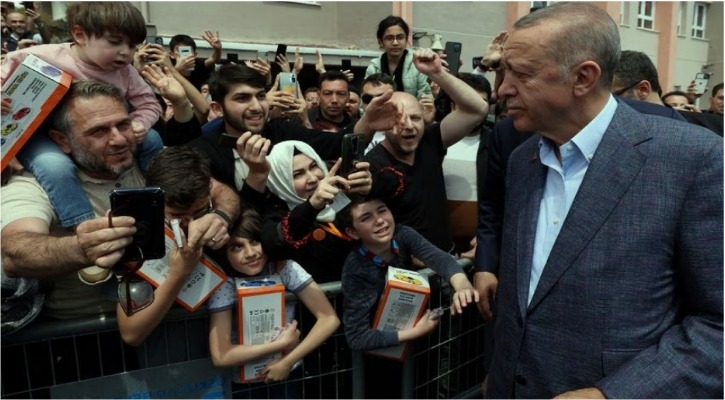
President Tayyip Erdogan of Turkey has surpassed expectations in the recent election, but neither he nor his rival, Kemal Kilicdaroglu, reached the 50% threshold required to avoid a second round. The runoff will occur on May 28 and is considered a crucial moment for Turkey’s future. This election not only determines the country’s leadership but also sets the course for secularism, democracy, economic challenges, and international relations.
Erdogan secured 49.39% of the votes, while Kilicdaroglu received 44.92% with nearly 97% of the ballot boxes counted. The outcome reflects a deeply divided nation standing at a political crossroads. Erdogan’s ruling alliance is expected to secure a parliamentary majority, providing an advantage in the upcoming runoff.
Despite Kilicdaroglu’s confidence in winning the runoff, Erdogan remains optimistic about his lead, anticipating a widening margin of victory. Sinan Ogan, a nationalist presidential candidate who garnered 5.3% of the vote, may play a decisive role by endorsing one of the remaining candidates.
Accusations of Erdogan’s party deliberately delaying the release of full results and manipulating the order of result publication have been raised by the opposition. Kilicdaroglu criticized these actions, asserting that Erdogan’s party is undermining the democratic will of the Turkish people.
Supporters of both candidates celebrated their respective candidates, with Erdogan’s followers gathering at the party’s headquarters in Ankara and Kilicdaroglu’s supporters waving flags and beating drums at his party’s headquarters.
The outcome of this election carries significant implications beyond Turkey’s borders. A victory for Erdogan, a key ally of President Putin, would please Russia but raise concerns for the Biden administration, as well as European and Middle Eastern leaders who have experienced strained relations with Erdogan. Erdogan’s leadership has transformed Turkey into a global player, yet his economic policies and slow response to crises have contributed to voter discontent.
Kilicdaroglu has pledged to revive democracy, pursue orthodox economic policies, restore ties with the West, and release political prisoners if he emerges victorious. Critics fear that Erdogan, if re-elected, may govern with increasing autocracy.
In the parliamentary vote, Erdogan’s alliance, which includes his party and the nationalist MHP, exceeded expectations and is projected to secure a majority. Kilicdaroglu’s Nation Alliance, composed of six opposition parties, including the Republican People’s Party, is anticipated to gain seats. The Labour and Freedom alliance, led by the pro-Kurdish Green Left party, is also expected to secure representation.
